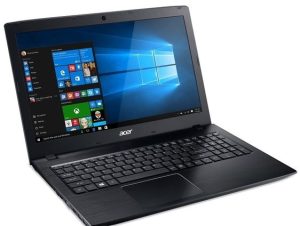
Are you considering purchasing a new laptop for the first time? Some helpful pointers might be beneficial for your decision-making process regarding specifications.
Acquiring a new laptop, especially for those less familiar with technology, can be perplexing. Certain technical terms related to laptops, such as RAM, HDD, ROM, i3/5/7, etc., might be particularly confusing. However, comprehending the meanings behind these terms and grasping the specifications (often referred to as specs) can assist in making informed decisions about your budget.
Primarily, three fundamental questions should consistently come to mind when embarking on the journey to buy your first laptop
A. What is my budget? The initial question revolves around your financial capacity and the predefined price range. Once this decision is made, you’ve essentially provided the answer.
B. What do I need the laptop for? This inquiry requires understanding the intended purpose for using the laptop. Are you aiming for campus use, work-related tasks, design work, gaming, programming, coding, or other uses? Once the purpose is clear, selecting an appropriate processor becomes easier.
C. What is my career path? Deciding on the duration of usage depends on your envisioned career trajectory. For instance, if you are pursuing a career as a graphic designer, engineer (civil or mechanical), or game designer requiring AutoCAD, then opting for a laptop equipped with a compatible and high-quality graphics card becomes imperative.Therefore, the crucial and primary specifications to be acquainted with include:
The processor
Operating system
RAM
Internal storage (ROM)
Battery performance
Screen size
Additionally, taking into account the warranty and the laptop’s generation (5th generation, 6th generation, 7th generation, etc.) is advisable.
Laptop Processors
Laptop processors have evolved across generations. For instance, the Celeron processor, a type that has persisted for some time, falls under the low-end category and tends to operate slowly. In more recent iterations, the i3 processor, possessing a solitary dual-core, stands in contrast to the i5 and i7 processors, which feature both dual-core and quad-core processors. Consequently, these processors exhibit superior operational efficiency and processing power.
HDD and SSD
Laptops are available with either HDD or SSD, each distinct in its functionality.
HDD (Hard Disk Drive): This storage device utilizes read/write functions to access data and is regarded as an older technology.
SSD (Solid State Drive): In contrast, this storage device stores data on easily accessible memory chips, presenting a newer and faster technology.
RAM
RAM, or Random Access Memory, temporarily stores data. Laptops employ RAM to access applications, browsers, and program files dynamically.
Different RAM sizes are available, with higher capacities indicating increased speed and laptop performance.
4GB RAM suffices for browsing the internet, basic office applications (MS Word, PowerPoint, Excel spreadsheet, etc.), and even functions adequately for photo editing.
8GB RAM is well-suited for heavy multitasking or light gaming.
16GB+ RAM caters to demanding tasks such as video editing, programming, coding, and gaming.






